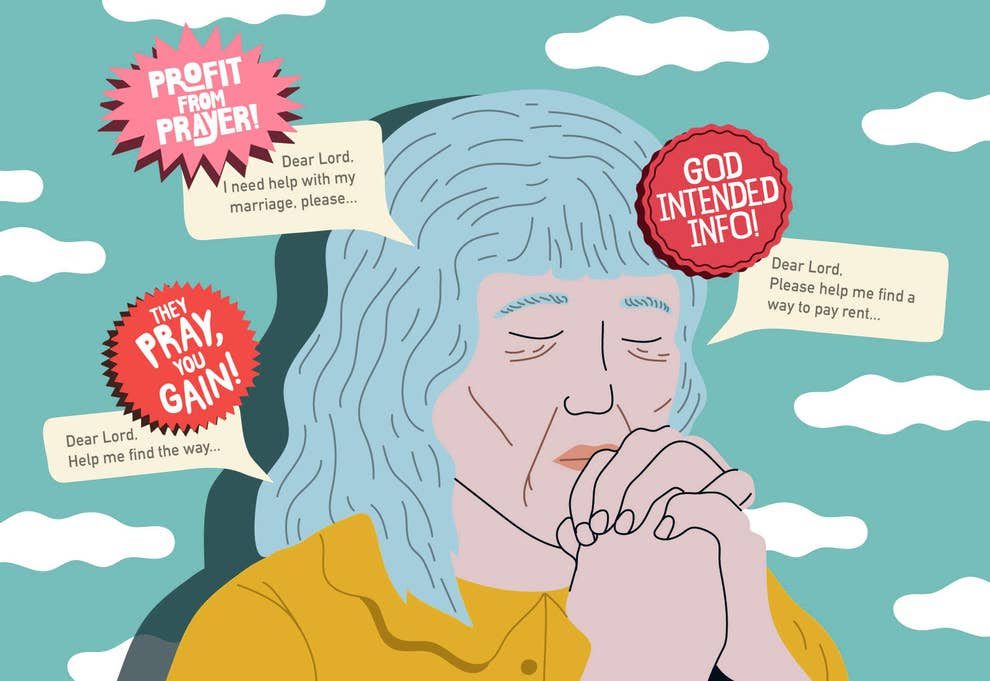Prominent venture capitalists are flocking to invest in Christian worship apps. The apps say users’ prayers are a business asset.
2016 was the worst year of Katie’s life. Just after New Year’s Day, her 24-year-old son went missing. Seven weeks later, police recovered his body from the river that snakes through her town. For months, to get to work, Katie had to drive across the bridge near where his body was found. To grieve, she turned to prayer apps: first, the now-defunct Instapray, and then to Pray.com.
Thanks to Pray.com, Katie found solace in a community of what she calls “prayer warriors” — thousands of people who share their deepest fears and hopes in a public Facebookesque feed of prayers and prayer requests. Katie posted prayers for her son, for her former husband, who died by suicide in 2008, and for her youngest child, who struggles with addiction. (All app users’ names have been changed to protect their privacy.)
As Katie laid out her spiritual anguish, Pray.com was data mining it, matching her actions in the app to details about her that it purchased from data brokers.
Pray.com collects data about its users in multiple ways. According to its privacy policy, the company records detailed information about users, including their physical location, the links they click on, and the text of the posts they make. Then, it supplements that information with data from “third-parties such as data analytics providers and data brokers,” which can include “your gender, age, religious affiliation, ethnicity, marital status, household size and income, political party affiliation and interests… geographic location, and Personal Information.” The policy also says Pray.com shares users’ personal information, including identifiers that link their activity to specific devices, with “third parties” for “commercial purposes.”
As Katie laid out her spiritual anguish, Pray.com was data mining it.
Like many app users daunted by inscrutable privacy policies, Katie had not read Pray.com’s. She was troubled to learn that the app shares data about her with other companies and flummoxed by its practice of supplementing said information with additional data from data brokers. “I just have no idea why they would need that,” she said.
Prior to an inquiry from BuzzFeed News, the policy made no mention of the company purchasing files about its users from data brokers. Pray.com added the language on Dec. 22, 2021, following the inquiry.
Pray.com declined to say which data brokers it has purchased data from and which third parties it has shared data with. Spokesperson Pat Shortridge said that Pray.com “does not share users’ public, private, or anonymous prayers and specific content consumption with third parties for their commercial purposes,” but did not answer follow-up questions about whether the company shares that information for its own commercial purposes.
However, an audit of Pray.com by privacy researcher Zach Edwards showed that…



